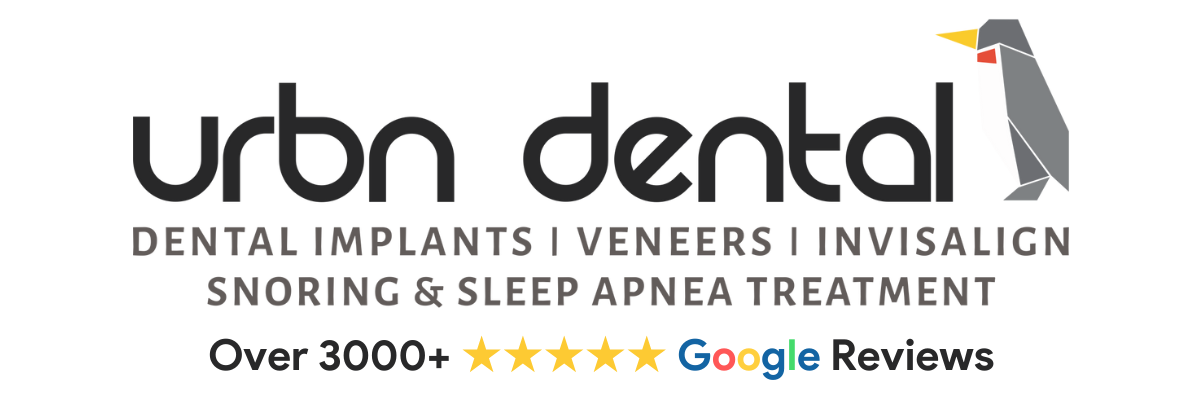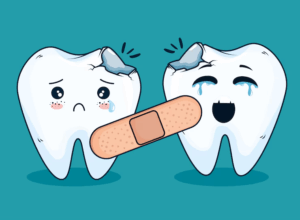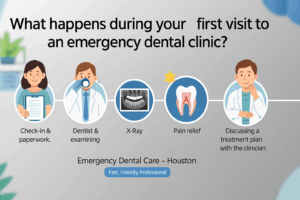Dental crowns are a common dental restoration procedure used to repair damaged, decayed, or broken teeth. Crowns are a “cap” or covering placed over the entire tooth structure to restore its function and appearance. Dental crowns are made from various materials such as porcelain, metal, or a combination of the two, depending on the patient’s needs.
At URBN Dental, we understand that dental crown replacement is a significant procedure that requires careful consideration. In this article, we will discuss everything you need to know about dental crown replacement, including the procedure, reasons for replacement, and aftercare.
Reasons for Dental Crown Replacement
A dental crown’s lifespan can vary, but on average, a crown should last anywhere from 10 to 15 years with proper care. However, there are several reasons why a crown may need to be replaced, including:
- Wear and Tear: Over time, dental crowns may wear down due to the forces of chewing and grinding, which can cause cracks or fractures in the crown.
- Dental Decay: Dental decay can occur underneath a crown if oral hygiene is neglected, leading to the crown’s failure.
- Gum Disease: If the gum tissue around the crowned tooth becomes inflamed or infected, it can cause the crown’s integrity to weaken and require replacement.
- Cosmetic Reasons: Patients may want to replace a crown for cosmetic reasons, such as replacing an old metal crown with a newer porcelain crown for a more natural look.
- Further Decay: If the underlying tooth structure suffers from decay, a crown may need to be removed to allow for further treatment, such as a root canal.
- Fractured or Damaged Crown: Excessive force caused by teeth grinding, biting hard objects, or accidental trauma can cause a crown to crack, break or become dislodged, requiring a replacement.
The Dental Crown Replacement Procedure
The dental crown replacement procedure generally begins with a thorough dental examination, including X-rays, to evaluate the remaining tooth structure and any underlying issues. If the tooth and gum tissue are healthy, we can proceed with removing the old crown.
The dentist will numb the area around the tooth and use specialized tools to remove the old crown carefully. If the crown is cemented with dental cement, the cement will be dissolved to remove the crown. Once the crown is removed, the remaining tooth structure is evaluated, and any decay or damage is treated before the new crown is placed.
Next, impressions of the tooth and surrounding gum line are taken, and a temporary crown is placed over the tooth to protect it while the permanent crown is being made. The impressions are sent to an off-site dental lab, where the permanent crown is custom-made to fit the tooth’s dimensions and natural color.
Once the permanent crown is ready, the patient returns to the dental office, and the temporary crown is removed. The new crown is then placed over the remaining tooth structure and cemented in place with dental cement.
Types of Dental Crowns
At URBN Dental, we offer several types of dental crowns, including:
- Porcelain Crowns: Porcelain crowns are the most common type of dental crown and are popular for their natural-looking appearance.
- Porcelain Fused to Metal Crowns: These crowns have a porcelain component fused to a metal base, providing a combination of strength and aesthetic appeal.
- Metal Crowns: Metal crowns are the most durable type of dental crown and are often used for molars because they can withstand the forces of chewing.
Aftercare for Dental Crowns
After a dental crown replacement procedure, patients should follow an oral hygiene routine that includes brushing twice daily and flossing regularly to prevent further decay or gum disease. Patients should also avoid biting hard or sticky foods to prevent damage to the new crown.
In some cases, patients may experience sensitivity to hot or cold temperatures or discomfort around the gum line after a crown replacement procedure. These symptoms should subside within a few days. If they persist, patients should contact their dentist for further evaluation.
It’s important to note that while dental crowns are a durable and long-lasting dental restoration, they are not indestructible. Patients should take care of their dental crowns, including regular dental check-ups and cleanings, to ensure they continue to function correctly.
If a patient has a history of teeth grinding or clenching, their dentist may recommend a mouthguard to protect the new crown from excessive force.
In some cases, a root canal procedure may be necessary before a new crown can be placed, especially if the underlying tooth structure has suffered extensive damage or decay.
At URBN Dental, we use advanced dental technology and techniques to provide our patients with the highest quality dental restorations. Our team of experienced dental professionals will work with you to determine the best course of treatment for your specific needs and ensure that your new crown looks and feels completely normal.
Conclusion
Dental crown replacement is a common dental restoration procedure used to repair damaged or decayed teeth. Crowns can be made from various materials, including porcelain, metal, or a combination of the two, depending on the patient’s needs.
There are several reasons why a crown may need to be replaced, including wear and tear, dental decay, gum disease, cosmetic reasons, further decay, or a damaged crown. The dental crown replacement procedure involves removing the old crown, evaluating the remaining tooth structure, taking impressions, and placing a temporary crown while the permanent crown is being made.
Aftercare for dental crowns includes following a regular oral hygiene routine, avoiding biting hard or sticky foods, and wearing a mouthguard if necessary.
At URBN Dental, we use advanced dental technology and techniques to provide our patients with the highest quality dental restorations. Our team of experienced dental professionals will work with you to ensure that your new crown looks and feels completely normal, restoring your beautiful smile and dental function. If you’re in Houston or the surrounding area and need a dental crown replacement, contact us today to schedule a consultation at one of our seven convenient locations.





